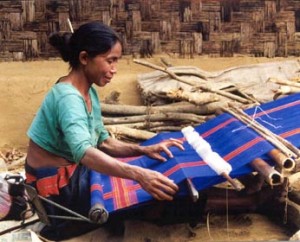Globally, as of December 2010, there are 107 women to every 100 men according to the United Nations’ Department of Economics and Social Affairs. However, literacy rates for women are generally lower than they are for men. For example, the numbers of women who can read and write simple sentences in Benin is 28 percent compared to 54% for men.
Women in the Labor Force
In Chad, 22 percent of women can read and write while 44% of men are able to read and writer simple sentences. When it comes to the percentage of the population that is employed, women lag behind men. In Egypt, 23% of women made up the labor force, while 17% of Iraq’s labor force was comprised of women. In Argentina women make up 42% of the workforce.
There are countries where women who work in manufacturing earn salaries equal to or above what men earn. As of 2008, women earned 118% of what men earned working at similar manufacturing jobs in Isle of Man. Women earned 142% of what men earned in Qatar and 108% of what men earned in Paraguay. However, these numbers are not the norm. In all other countries women earned 92% or less for working at the same or a similar manufacturing job as did their male counterparts.
Women Gaining Equal Footing in Economic Sector
One of the key ways that women can gain equal footing in the economic sector is to own property. Long standing social norms, religious beliefs, local legislation and customs prevent or make it difficult for women to own property in many countries around the world. The United Nations reports that even in countries where women do the bulk of the farming, they are disallowed the right to own land. Of course, the more land women own, the stronger women are economically. Absent land ownership, when a woman’s husband, brother or son dies, many women are left homeless and financially impoverished, because unless they marry again, and soon, they have no viable means wherewith to care for themselves and their young children.
Agreements made between countries have begun to advocate land ownership amongst women. In particular, the Convention of the Elimination of all Forms of Discrimination Against Women has taken the lead on vocalizing the need for women to own land. This economic strength, in turn, translates into a sharp rise in self-esteem and leverage in the home. Women who own their own land realize that they are able to provide for themselves and their children. This empowers women to walk away from sexually, physically, emotionally and economically abusive relationships.
Women Form Powerful Coalitions
Years ago it might have seemed impossible that women could band together, create powerful coalitions and establish guidelines and tenants that would empower them, their daughters, granddaughters and other women coming after them. Today that is exactly what is happening.
As the world becomes truly global with the growth of the Internet and the advancement of technology (e.g. social networks, satellite radio), women are able to connect with one another, discuss pertinent life events and trends that impact their lives and the lives of their families and take action steps to bring about improvements to their local towns, countries and regions. The world becoming truly global is making it clear to women, men and children that no one is an island. What affects one country, sooner or later, starts to affect other countries. Likewise, what impacts a community of women in one location, regardless of how large or small that location is, sooner or later, creates a ripple effect and starts to impact women in other parts of the world.
Countries that want to be truly strong and viable in international markets and social landscapes, must empower the women who make up their citizenry. This means that women should be afforded the same social, political, educational, economic and religious rights that men are. Whether one wants it to be so or not, the world has already changed. It is no longer that the world is changing; the world has already changed and is continuing to change more. Those who insist on doing things the “old” way so the “old guard” can maintain control, might find themselves ruling a small patch of land that has been blown out to sea, far away from where the real productive live cycles are.
Women Demand Their Rights to Empowerment
Women who speak up and demand their rights to empowerment, help not only themselves, their daughters, granddaughters and other women, they help men and they help children, regardless of gender, everywhere. The Association for Women’s Rights (AWID) is one such instance where women have banded together and begun to work to empower women everywhere.
Current issues that AWID is tackling are the fact that the Afghanistan government threatening to take over the operation of women’s shelters. The government would assign the management and operation of the shelters to its Afghanistan Ministry of Women’s Affairs, thereby adding a layer of governmental control over the shelters that often serve as a woman’s last safe haven for protections against violent acts that her husband commits against her.
As Halima, a 35-year old Afghanistan women said on AWID’s website, “If our government is serious about ending the misuse of women’s rights, they have to stop the continuous sexual abuse of women in female prisons throughout Afghanistan. If we women had any confidence in the ability of the government to protect us I would have not come to this women’s shelter but would have gone to them in the first place. Instead, I was made to sit in a police station for half an hour and was accused of every possible crime by the police after I escaped home.” Halima’s husband had sold her on three separate occasions to help pay his gambling debts.
Child Brides in Congo
AWID is also publicizing the proposal of a dress code in Russia that was made by the Russian Orthodox Church and child brides in Congo. Marrying someone under the age of 18 years is illegal in the Democratic Republic of Congo. However, two men in the country recently wed under-age girls; one man married a nine year old, while the other married a 13-year old girl. The men received 20 years in prison.
For their actions to prosecute the men, magistrates who prosecuted the cases were greeted by angry mobs. Their homes were vandalized. One magistrate, Charles Kabozia, said, “This is the right occasion to encourage magistrates and all those who are in charge of the application of the law to keep working for [it], on the one hand, and explain to the population the new law on sexual violence, since it is difficult and not known by everybody. Some mentalities should be changed, especially in remote regions.”
The law forbidding the marriage of underage girls is new to the country. AWID also posts jobs that women can apply for at their website.
Women’s Environment and Development
Women’s Environment and Development Organization (WEDO) is another agency that provides information, resources and practices WEDO has been around for two decades, since 1991. The organization works with local and regional governmental, political and social agencies to advocate for women. The Women Development International Association (WODIA) is a non-governmental organization that is headquartered in Nigeria. It defends women’s human rights and provides educational, healthcare and poverty reduction programs to women, men and children around the world
Other organizations that work to empower women in and out of the boardroom are Advancing Women to the Boardroom, Women in the Boardroom and the International Women’s Development Agency.
Find out about Spiral and Long Walk Up at www.chistell.com
Sources:
http://www.womenintheboardroom.com (Women in the Boardroom)
http://www.ionwomen.org (ION: Advancing Women to the Boardroom)
http://www.awid.org (Association for Women’s Rights in Development)
http://www.wedo.org (Women’s Environment and Development Organization)
http://www.thewodia.org (Women Development International Association)
http://www.unifem.org/gender_issues/women_poverty_economics (UN Women: Women, Poverty & Economics)
http://www.un.org/womenwatch/directory/statistics_and_indicators_60.htm (Women Watch)
http://www.iwda.org.au/au (International Women’s Development Agency)





This might not be the largest Country in the World, but I think it is the most cleanest. One way you can measure the success of somewhere is the measure it’s arts. There is little doubt that this place exceeds other places away. I wouldn’t want to live there, but a year or three would be pretty sweet.
I love your blog, you should add an RSS feed feature so I can get automatic notifications of new blogs. If you set one up please email me! i will bookmark you for now. Again Excellent Blog!
I love the layout of your blog. Obviously you have a very valid point, however I can’t get over how great the site design is.
I do not actually understand how there is much different between the Daily News getting this out this or some internet blog. Content like this must to be released out more often. I wished that people in the USA would take a stand like this.